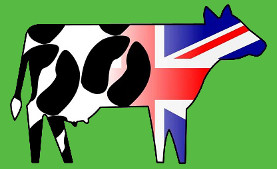By De Rensis, F. and Garcia-Ispierto, I. and López-Gatius, F., Theriogenology, 2015
Research Paper Web Link / URL:
http://www.sciencedirect.com/science/article/pii/S0093691X15002058
http://www.sciencedirect.com/science/article/pii/S0093691X15002058
Description
Heat stress has consequences on both the physiology and reproductive performance of cows, but the most dramatic effect for dairy producers is the decrease produced in fertility. The effects of heat stress on fertility include an increased number of days open, reduced conception rate, and larger number of cows suffering different types of anestrus. Once becomes pregnant, heat stress affects also the reproductive success of the cow through its direct effects on the ovary, uterus, gametes, embryo, and early fetus. This article reviews current knowledge of the effects of heat stress on fertility in dairy cows and the hormonal strategies used to mitigate these effects at the farm level. Administration of GnRH at the moment of artificial insemination can improve the conception rate. Breeding synchronization protocols for fixed-time insemination may reduce the calving conception interval and the number of services per conception. Progesterone-based protocols seem resolve better the reproductive disorders related to a hot environment (anestrus) than GnRH-based protocols. The use of combinations of GnRH, eCG, and hCG in progesterone-based protocols can improve results. Progesterone supplementation during the late embryonic and/or early fetal period would be useful in curtailing pregnancy losses, mainly in single pregnancies, whereas a more positive effect of treatment with GnRH than progesterone has been found in twin pregnancies. Melatonin therapy is emerging as a promising strategy to improve the natural reproductive performance of cows suffering conditions of heat stress.
Heat stress has consequences on both the physiology and reproductive performance of cows, but the most dramatic effect for dairy producers is the decrease produced in fertility. The effects of heat stress on fertility include an increased number of days open, reduced conception rate, and larger number of cows suffering different types of anestrus. Once becomes pregnant, heat stress affects also the reproductive success of the cow through its direct effects on the ovary, uterus, gametes, embryo, and early fetus. This article reviews current knowledge of the effects of heat stress on fertility in dairy cows and the hormonal strategies used to mitigate these effects at the farm level. Administration of GnRH at the moment of artificial insemination can improve the conception rate. Breeding synchronization protocols for fixed-time insemination may reduce the calving conception interval and the number of services per conception. Progesterone-based protocols seem resolve better the reproductive disorders related to a hot environment (anestrus) than GnRH-based protocols. The use of combinations of GnRH, eCG, and hCG in progesterone-based protocols can improve results. Progesterone supplementation during the late embryonic and/or early fetal period would be useful in curtailing pregnancy losses, mainly in single pregnancies, whereas a more positive effect of treatment with GnRH than progesterone has been found in twin pregnancies. Melatonin therapy is emerging as a promising strategy to improve the natural reproductive performance of cows suffering conditions of heat stress.
We welcome and encourage discussion of our linked research papers. Registered users can post their comments here. New users' comments are moderated, so please allow a while for them to be published.
